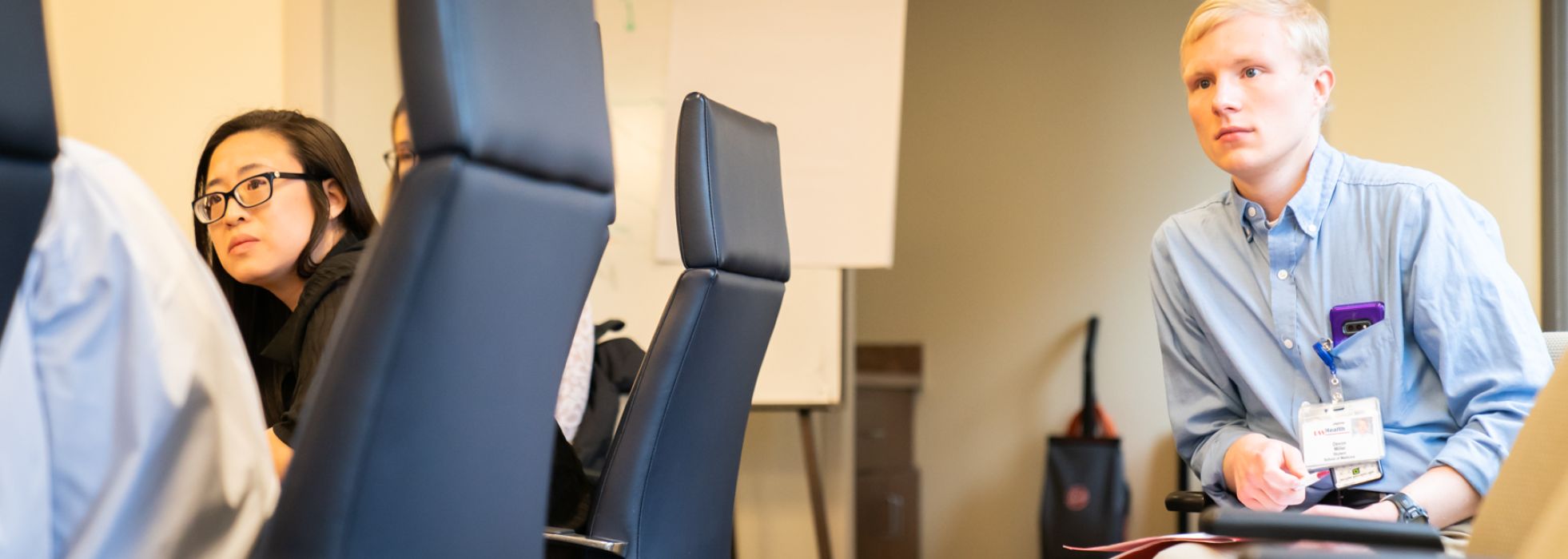Customized Training for the Career You Want
With lectures from content experts in all disease areas, and unique elective scheduling flexibility, you will get the experiences you need for the career you want.
Didactic Experiences
Our weekly fellowships conferences include:
-
Mondays: Core curriculum/Journal club
-
Tuesdays: Didactic lectures
-
Wednesdays: Cancer Center Grand Rounds
-
Thursdays: Clinical research meeting
-
Fridays: Department of Medicine Grand Rounds
In addition to face-to-face teaching and case-based learning, you'll learn the intricacies of chemotherapy through simulated activities at the state-of-the-art UW Health Clinical Simulation Program.
We also offer a unique, interactive workshop to teach effective ways to communicate with patients about serious illness.
Finally, we encourage fellow self-reflection, provide structured time for improving our fellowship and practices, and show you ways to cope with the challenges of caring for patients with life-threatening illnesses.
Clinical Experiences
Work closely with nationally recognized physicians at UW Health's University Hospital, Wisconsin's top hospital. Staff your own patient panel at our fellow-run clinic at the adjacent William S. Middleton Memorial Veteran's Hospital.
You'll have 18 months of assigned clinical time and 18 months of protected elective time. You can choose electives in any rotation, or tailor your own to meet your career goals.
Our program has elective rotations in many broad subtypes of cancer and hematologic disorders, to fit your interest and needs.
Scholarly Activity
Research
We have a robust partnership with the UW Carbone Cancer Center, Wisconsin's only National Cancer Institute-designated cancer center. This gives fellows access to specialists in cancer prevention, clinical trial design, public health research, medical student/resident education, and community outreach.
See our Research page for more details.
Teaching Opportunities
Our fellows can teach learners and physicians at all levels. Opportunities range from precepting small groups of first-year medical students, to teaching clinical skills to second- and third-year students, to providing CME for practicing clinicians.
Educator Development
The Department of Medicine's Fellow Medical Education (FAME) Training Track trains fellows to become effective clinician-teachers and scholars.
Additional Opportunities in the Department
- QI Curriculum for Fellowship. Teaches fellows how to apply quality improvement knowledge and skills directly to clinical practice.
- We apply QI principles to our UW Health and VA practices. We have presented pilot data on reflex testing for HBV with rituximab and bone mineral density testing for patients with breast cancer, and are developing a QI curriculum on the ordering and follow-up of patients receiving oral chemotherapy/targeted therapies.
- Women in Leadership and Development (WILD). Trainee-led program that provides women fellows with a toolkit for career advancement and skills to negate systemic gender bias and inequities in academic medicine.

